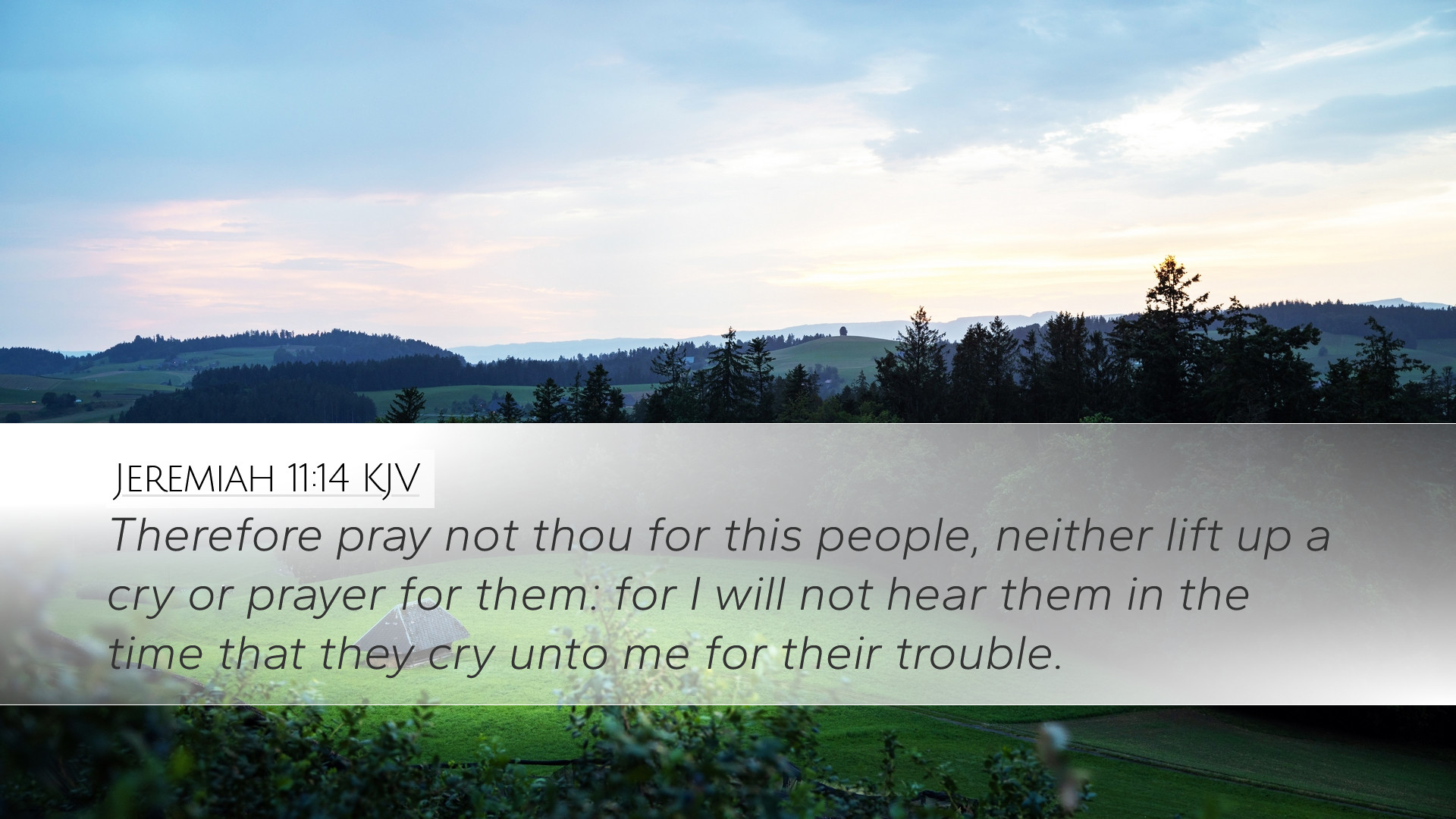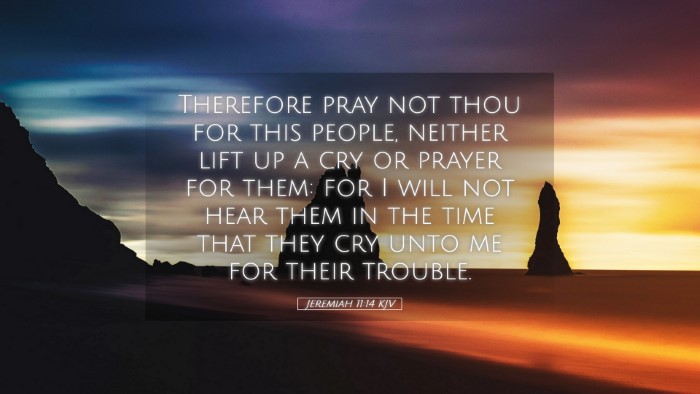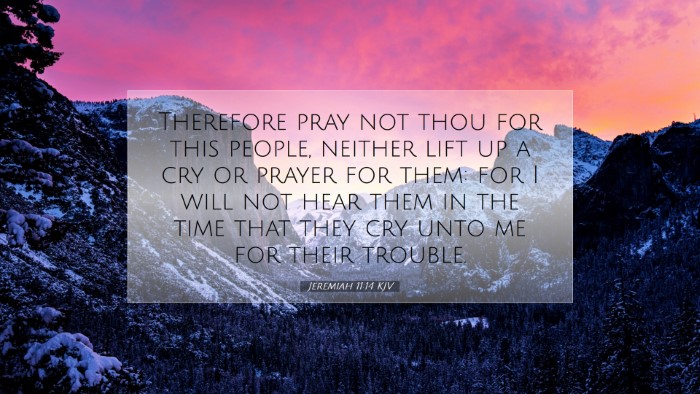Commentary on Jeremiah 11:14
Verse Overview: Jeremiah 11:14 states, "Therefore pray not thou for this people, neither lift up a cry nor prayer for them: for I will not hear them in the time that they cry unto me for their trouble." This verse is a stern warning from God through the prophet Jeremiah concerning the divine judgment and the consequences of Israel's unfaithfulness.
Contextual Background
This chapter is part of a larger discourse about the covenant between God and Israel. It addresses the people's persistent infidelity and highlights the impending judgments due to their idolatry. Jeremiah, the weeping prophet, faced tremendous challenges as he communicated God’s displeasure with a nation that had turned away from Him.
Theological Implications
This verse raises significant theological questions regarding intercession, divine judgment, and the nature of God’s relationship with His people. Here are several key insights:
- Divine Judgment: The phrase "I will not hear them" emphasizes God's resolution to enact judgment due to the persistent sinfulness of His people. It reflects the seriousness of their offenses and the extent of their rebellion against God.
- Intercessory Limits: Jeremiah is explicitly instructed not to intercede for the people. This stark command indicates that there can come a point where God’s patience runs out, and His willingness to respond to prayers diminishes due to unabated disobedience.
- God’s Holiness: The verse underscores the holiness of God, who cannot overlook sin. His justice is as central to His character as His mercy. The refusal to hear the cries of the people becomes a critical revelation of His nature.
Commentary Insights
Matthew Henry
Matthew Henry emphasizes the severe reality of God’s disapproval. He notes that this command to refrain from prayer signifies a point of no return for the Israelites. They had reached a state of such corruption that even the prayers of a righteous man could not sway God's decision to invoke judgment. Henry believes this reflects a chilling truth about divine justice; God can and will act against those who persistently defy Him.
Albert Barnes
Albert Barnes elaborates on the context of God's refusal to hear the people. He suggests that the command not to pray for them indicates that their outer show of piety had become meaningless due to their underlying unfaithfulness. Barnes highlights the futility of prayer when one's heart is far from God, echoing the broader biblical principle that the effectiveness of prayer is contingent on a righteous state of being and sincerity of heart.
Adam Clarke
Adam Clarke offers a perspective on the emotional toll this command must have taken on Jeremiah. As a prophet invested in the spiritual well-being of his people, being told not to pray for them placed a heavy burden on him. Clarke posits that this moment signifies both a divine strategy to illustrate the gravity of Israel’s sin while at the same time providing a prophetic witness of the inevitable destruction that awaited the nation, should they continue to turn away from God.
Practical Applications
For pastors, theologians, and students of the Bible, this verse offers critical reflections on intercession and the nature of sin:
- Importance of Genuine Repentance: The absence of God's willingness to hear the people's cries implores believers to self-examine their spiritual state. Pastors should teach the significance of sincere repentance as a prerequisite for effective prayer.
- Intercession with Discernment: This verse serves as a cautionary tale for those engaged in intercessory prayer. It invites leaders to consider when it might be appropriate to stand firm in God's truth rather than persisting in prayer for relief from judgment.
- The Role of Corporate Responsibility: The collective behavior of the people affects their relationship with God. This verse urges congregations to pursue communal integrity and faithfulness, as the fate of the community can hinge on their united stance against sin.
Conclusion
Jeremiah 11:14 serves as a sobering reminder of the consequences of turning away from God. The prophetic voice of Jeremiah echoes through this warning, capturing the essence of divine justice operating alongside mercy. For contemporary readers, especially those in ministry or scholarship, it challenges the understanding of prayer, intercession, and the holiness of God in light of human transgressions.


